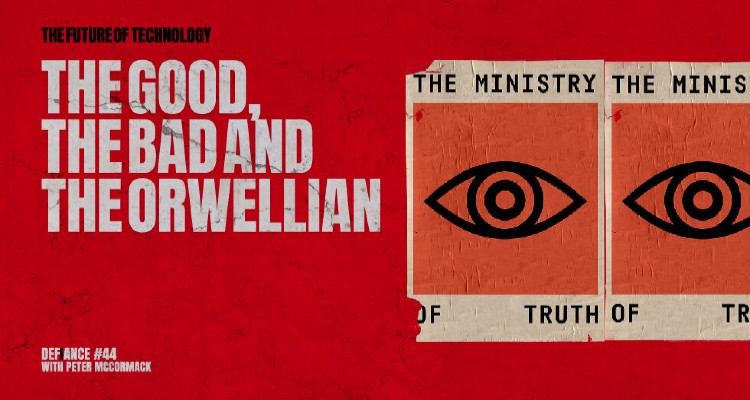Futurist Ross Dawson on Sexbot Sex Educators, Virtual Dating, and the Risks and Rewards of Sex Tech
Be aware of the promise and peril of technology on sexuality, says Future of Sex publisher.

The potential of technology to augment sexual expression is too important to ignore, FutureofSex.net publisher Ross Dawson told Peter McCormack on his podcast Defiance.
In the episode called The Future of Technology: The Good, The Bad & The Orwellian, McCormack focused on the silver linings of the COVID-19 pandemic and how certain changes it’s ushered in may improve our lives.
For example, telecommuting as well as eating and living better during the lockdown.
Meanwhile, on the worse side of things, McCormack painted a dark picture:
The old adage ‘never let a good crisis go to waste’ has undoubtedly been true of this pandemic. Governments around the world are overreaching and implementing surveillance that they will likely be reluctant to relinquish, and the post-coronavirus world may be an Orwellian dystopia.
Dawson, however, while cautioning that sexual technology should be carefully studied for any potential negative impact, countered this dark view. He said it could also be of great benefit toward how we connect with other people, and even how we might grow sexually.
“Sexuality is so fundamental to what it is to be human that I believe that this a direction which we must explore and we must be cognizant of the possibilities, the dangers, and the potential,” Dawson said.
Technology is neither good nor bad
As part of the show’s introduction, McCormack brought up American Historian Melvin Kranzberg’s Six Laws of Technology, particularly #1, “Technology is neither good nor bad; nor is it neutral,” and #6 “Technology is a very human activity—and so is the history of technology.”
This view of looking at what humanity could do with it—whether it’ll become a force for progress or oppression—is then discussed by five technology experts and futurists: Sam Lessin, Alex Gladstein, Jonathan Brill, Rob Reid, and, of course, Ross Dawson.
While their opinions vary on a future bending towards dystopic or utopic, Dawson’s segment of the show stands out by addressing that, because sexuality plays such an important part in being human, we need to thoroughly explore technology’s effects on relationships.
Excitement and concern for the future of sex and dating

Dawson started by touching on how VR and other new telecommunications technologies have changed dating during the lockdown, addressing that before the pandemic having a virtual dinner date was practically unheard of.
Now, though, it’s become commonplace.
But more than that, it promises that people could use this kind of technology to have greater options for getting to know one another and even establish relationships.
Other potential opportunities VR brings, whether it’s interacting with other people or even artificial intelligences, Dawson said is in expanding how we all might live in the future: having new ways to express ourselves, communicate, and even use virtual spaces as a learning environment.
Moving toward sexuality, he then discussed the idea of remote sex and his recent conversation with Howard Rheingold, who coined the term “teledildonics” in 1990.
New ways of being and expressing ourselves
Dawson next spoke about sexbots, including the common concern that their superior engineering makes them more desirable sexual partners than humans.
Even so, Dawson added that artificial intelligence and advanced robotics could create robot sex educators: allowing us to explore things we might otherwise be uncomfortable trying with another person.
In this way, he continued, technology holds tremendous promise in not supplanting but instead augmenting sexuality: giving us new ways to explore and even enhance our physical pleasures.
Measured, but also optimistic: in the podcast, Dawson laid it out clearly and articulately: while we need to stay vigilant in regards to how sex tech could cause problems, it also has the possibility to make sex and relationships much more fulfilling in the future.
Image sources: Defiance, Ross Dawson
Leave a reply
You must be logged in to post a comment.

















